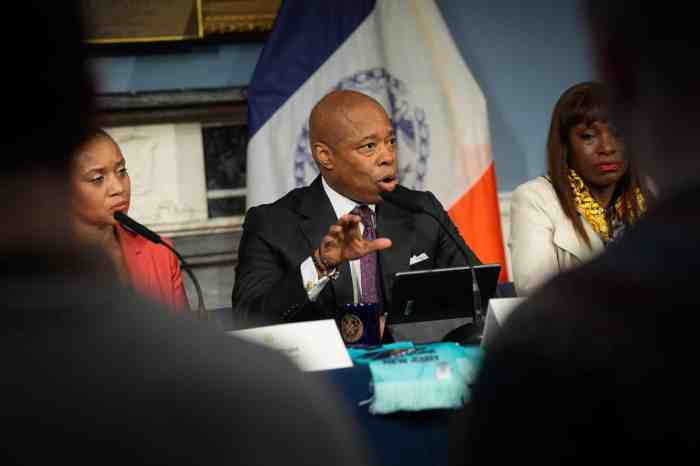 Hauppauge, to protest Suffolk County’s cuts to child care subsidies. (Aug. 30, 2012)” class=”wp-image-14302025″/>
Hauppauge, to protest Suffolk County’s cuts to child care subsidies. (Aug. 30, 2012)” class=”wp-image-14302025″/>While politicians, most of whom have never been truly poor, continue, in the abstract, to debate how to best help those living in poverty, Shanesha Taylor – a homeless mother of two who was arrested for leaving her children unattended in her car to go to a job interview – just helped give the debate a human face.
Not more of the usual statistics or hypotheticals, but a pained, tear-stained, real live face of what a struggling working mother’s situation can look like, and what it can do to people, including those who mean well. And, of course, this goes against most stereotypes about those living in poverty – namely the stereotype that many of them don’t mean well, at all.
In my view, she should have been arrested for leaving a 2-year-old and a 6-month-old baby alone in the car. To say otherwise is, at best, to naively let empathy for her tragic circumstances – she reportedly lives in her car – cloud common-sense judgment regarding the larger issue of ensuring that children are safe.
Let’s say, for instance, that the car Taylor’s kids were left in had caught fire, something that has happened to a number of homes in which children were left alone. I doubt that we’d be taking up a collection for Taylor. And I can’t help but think that there were other options. For instance, I know of mothers who weren’t homeless but were struggling to line up child care for their kids, who had members of their churches step in and help them out. I’ve even seen family members do it, too, because they believe, as I do, that “It takes a village.”
But it’s still tragic that she’s in this position, and her case is an opportunity for all of us to learn several valuable lessons: Affordable child care is a necessity, not a luxury, in a first-world country. According to a report by ChildCare Aware America, in three dozen states, the annual day care cost for a small child is more than a year’s tuition at a four-year, public university and is higher than average rent costs in many markets. This means that even families who have made the “right” choices in life – graduated from school, remained consistently employed and maintained stable familial and community relationships – will struggle to afford safe child care. And the Shanesha Taylors of the world have even fewer options.
Parental education should be required, not optional. Taylor made a bad choice, but it doesn’t mean she’s a bad person or will be a bad parent in the long run. But it does mean she clearly has a steep learning curve. And it’s shocking, given the level of neglect and abuse in our society, in general, that we as a country still treat parenting education as an oddity.
British Prime Minister David Cameron believes that parenting education is just as important as driving lessons. I would argue that it is even more so. Geoffrey Canada, the innovative educator behind Harlem Children’s Zone, makes parenting classes a core component of his education philosophy. We’d be well-advised to follow their lead and make parenting education a priority in more American communities, churches and schools.
Single parenthood will always be tougher. I’ve said it before, and – although people sometimes get offended – I’ll say it again, because the facts are clear: Being a single parent is harder on parents and children. I don’t know if Taylor has a reliable husband or partner in her life to share not only the financial burden of two children but the child-rearing responsibilities as well. But if she does, she shouldn’t have found herself having to have made such a heart-wrenching choice.
The government will always have a responsibility to the poor. We’re in an era in which debates about the size and scope of government are at a fever pitch, and the message is clear that if we make cuts to Medicaid or Head Start, a church or private institution will, and should, step in to pick up the slack. But the fact of the matter is that the government will always have a responsibility to aid those who are struggling. If the moral argument isn’t compelling, the fiscal one should be, because a healthy, educated, successful populace is one that costs our country and government less in the long run.
After all, Shanesha Taylor’s lack of child care means now she will serve time in jail and her kids may be placed in government care, all of which costs taxpayers more than it would have if there had been enough programs in place to give her a hand up, not a handout.
Goff is The Root’s special correspondent

















